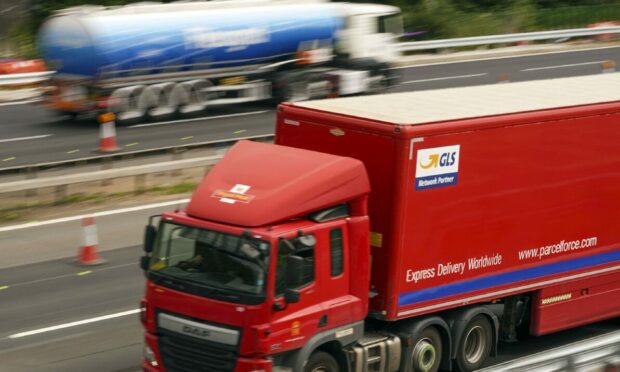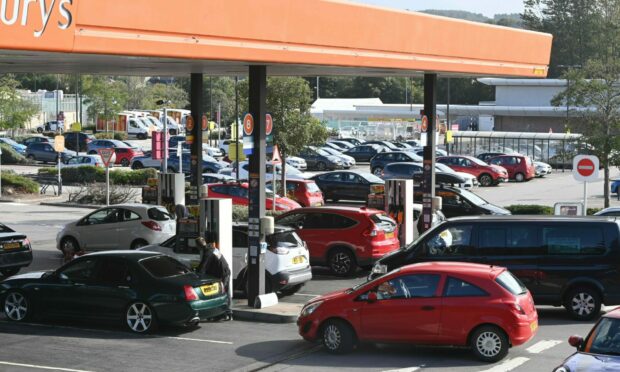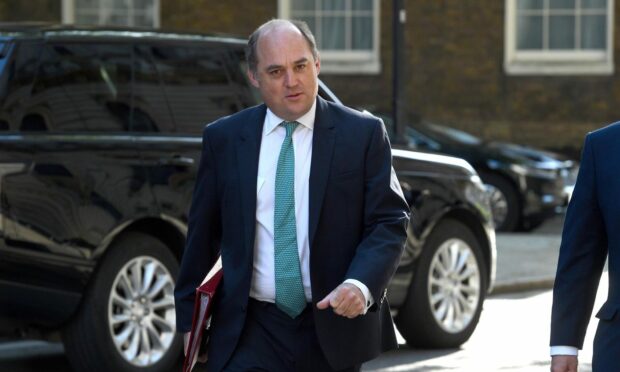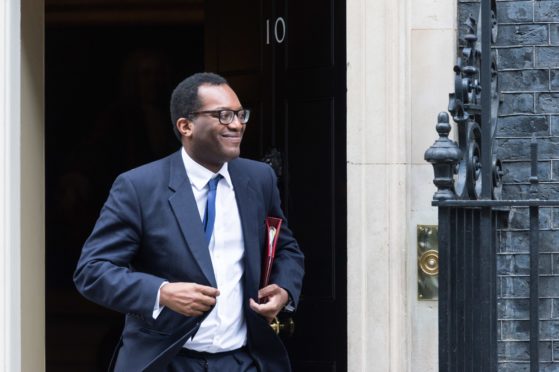The government will deploy military tanker drivers to deliver fuel to forecourts from Monday.
Completing their training this week, around 200 military personnel will help provide temporary support as part of the government’s bid to relieve pressure on petrol stations and address a shortage in HGV drivers.
While demand for fuel has somewhat stabilised throughout the week, some parts of the country still face challenges.
Queues began forming at petrol stations the length and breadth of the UK throughout this past week as drivers rushed to buy fuel amid concerns over shortages.
Countless petrol stations, including several in Aberdeen and across the north-east had their pumps run dry as they tried to meet demand.
Why is there a shortage of HGV drivers?
The panic at the pumps has been due to a lack of HGV drivers being able to deliver fuel rather than a lack of fuel itself.
A shortage that has been attributed as a consequence of Covid-19 and Brexit.

Before Brexit, when the UK was part of the single market, drivers were able to travel back and forth to Europe with ease.
Now, the additional red tape has meant for many it was too much hassle to drive into and out of the UK.
It is understood that there is currently a gap of more than 100,000 drivers in the UK.
This includes around 25,000 drivers from EU member states who were living and working in the UK but left in 2020.
In addition to pressures mounted by the UK’s withdrawal from the European Union, the pandemic has created a backlog of around 40,000 drivers waiting to take their HGV tests.
Short term solution
The government will deploy almost 200 Military tanker personnel, 100 of which are drivers, to temporarily address the shortage of HGV drivers.
To ease pressures in the short term, a scheme allowing up to 300 fuel tanker drivers to the UK will be introduced on a temporary basis until March 2022.
Hauliers will find licensed drivers to recruit and have to submit applications to the Department for Business, Energy and Industrial Strategy – which will endorse applicants with the necessary license and a contract to work as a fuel driver.
Thousands of food drivers and poultry workers will also feature as part of temporary immigration arrangements announced last week.
It is understood that around 4,700 food haulage drivers and 5,500 poultry workers will be allowed to arrive from late October to provide short term relief for the food industry as the UK looks to ensure supply chains in the run up to Christmas.
In the hopes of securing a long term solution, the government has said it is working with industry to make HGV sector more attractive and improve conditions.
“More fuel being delivered to forecourts than sold”
Steve Barclay, Chancellor of the Duchy of Lancaster said: “The Government has taken decisive action to tackle the short term disruption to our supply chains, and in particular the flow of fuel to forecourts.
“We are now seeing the impact of these interventions with more fuel being delivered to forecourts than sold and, if people continue to revert to their normal buying patterns, we will see smaller queues and prevent petrol stations closing.”
Defence secretary Ben Wallace added: “Across the weekend over 200 military personnel will have been mobilised as part of Operation Escalin.
“While the situation is stabilising, our Armed Forces are there to fill in any critical vacancies and help keep the country on the move by supporting the industry to deliver fuel to forecourts.”
Business Secretary Kwasi Kwarteng added: “Thanks to the immense efforts of industry over the past week, we are seeing continued signs that the situation at the pumps is slowly improving.
“UK forecourt stock levels are trending up, deliveries of fuel to forecourts are above normal levels, and fuel demand is stabilising.”
Temporary visas have already been rubbished as a long term solution with reform within the haulage industry being deemed vital for the future.
Collaborating with freight associations, it is hoped the HGV industry will become a more attractive career path for prospective drivers.
Mr Kwarteng added: “It’s important to stress there is no national shortage of fuel in the UK, and people should continue to buy fuel as normal. The sooner we return to our normal buying habits, the sooner we can return to normal.”


